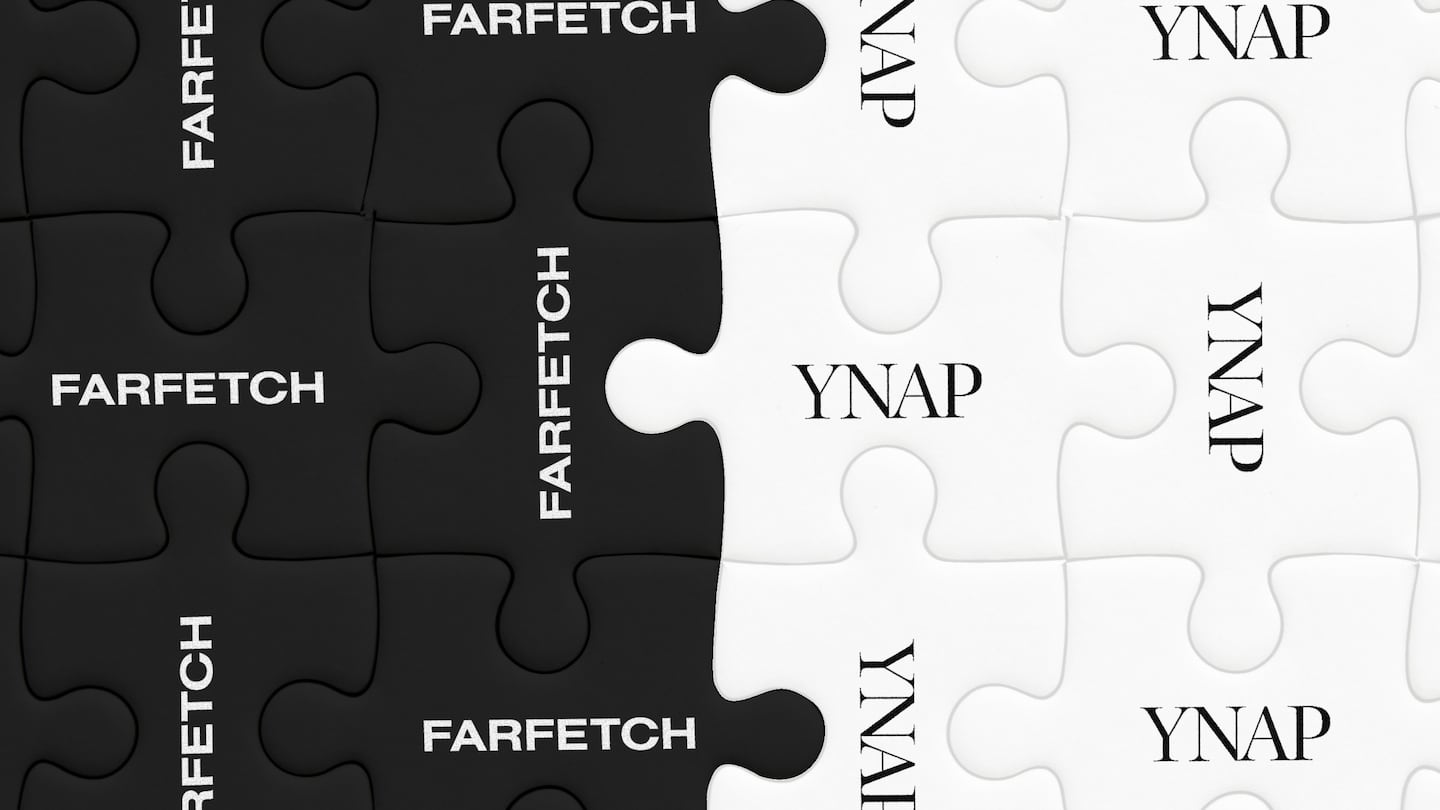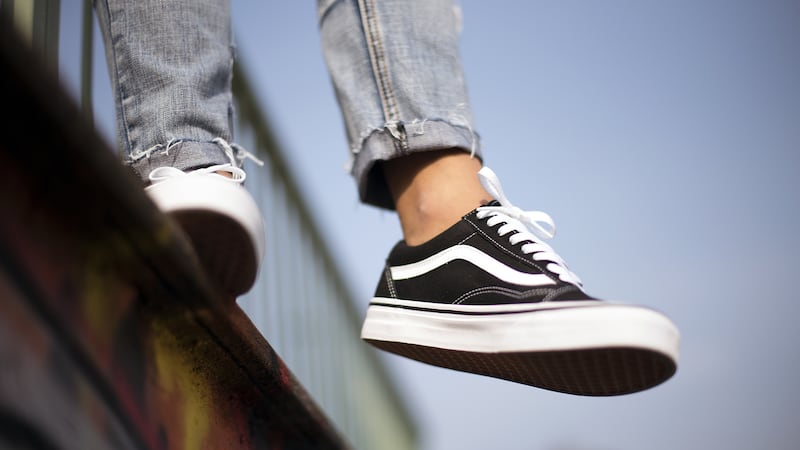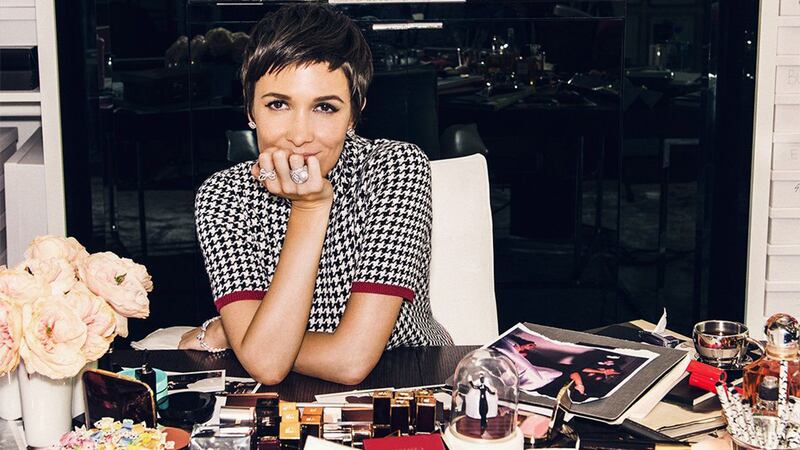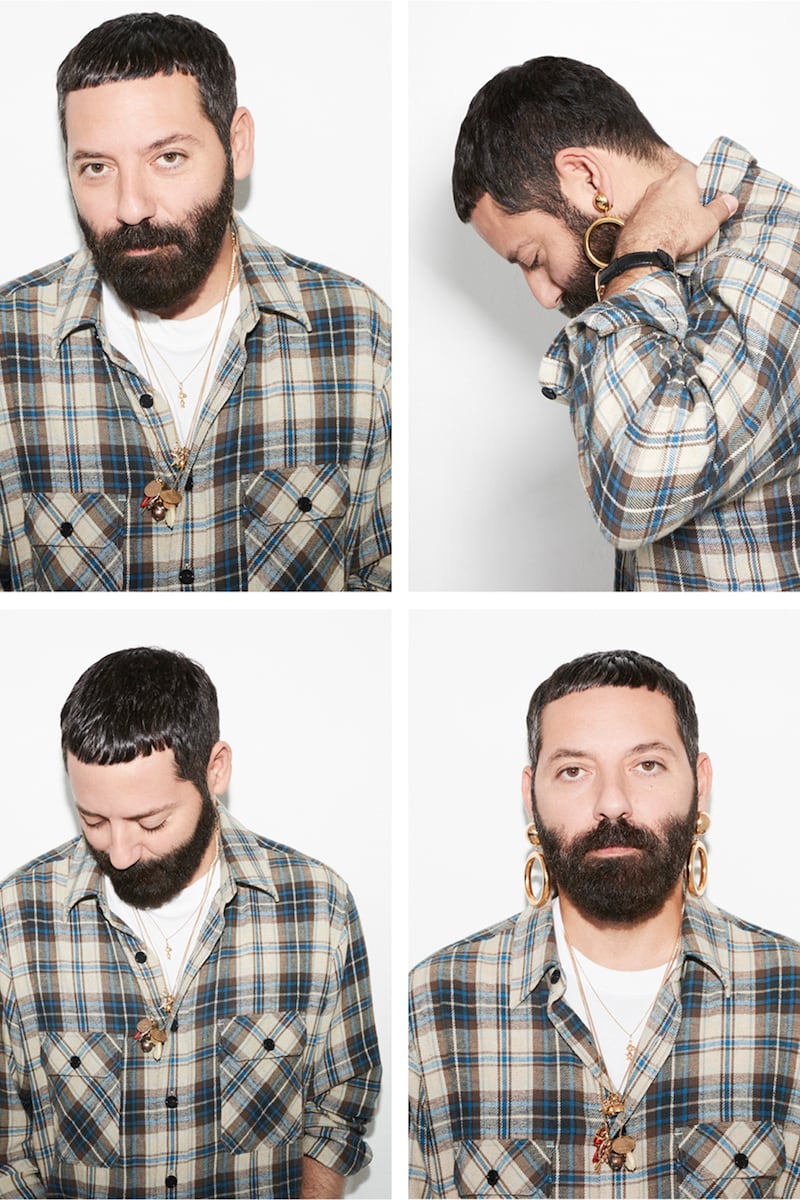
The Business of Fashion
Agenda-setting intelligence, analysis and advice for the global fashion community.

Agenda-setting intelligence, analysis and advice for the global fashion community.

This week, the deadline for EU antitrust regulators to approve Richemont’s spin-off of Yoox Net-a-Porter in a joint venture with rival Farfetch came and went without news. But a decision has been made and an announcement is set for Monday, according to sources, with the e-commerce mega-deal widely expected to get a green light.
Under the terms of the agreement, Farfetch is set to acquire 47.5 percent stake in YNAP with provisions for a full acquisition within three to five years. Emirati business mogul Mohamed Alabbar will acquire a 3.2 percent stake, helping to bring Richemont’s stake below 50 percent so it can deconsolidate the unit in its financial reporting.
But in the 14 months since the deal was first announced, Farfetch has lost investor confidence, sending its share price plunging almost 90 percent. This has significant implications for the deal, Richemont, Yoox Net-a-Porter and the fashion ecosystem at large, given that hundreds of boutiques, major department stores like Harrods and Neiman Marcus, and brands from Thom Browne to Chanel depend on the company’s technology. (Richemont declined to comment for this story. Farfetch did not respond to a request for comment.)
What went wrong with Farfetch? What do its woes mean for Richemont, YNAP and the industry at large? And where do things go from here? BoF breaks down the situation.
ADVERTISEMENT
Despite a post-pandemic boom in luxury spending, Farfetch has performed poorly in recent quarters, sending investor confidence and the company’s share price tanking. In August, Farfetch reported second-quarter revenues contracted 1 percent year-on-year to $572 million, well below analyst forecasts of $650 million. The poor results prompted the company to lower its sales outlook for the full year by $500 million.
On the liquidity side, Farfetch appears to be thinly stretched. After 15 years in business, the company still is yet to turn a profit. In 2022, net losses widened to $817 million, according to Bernstein analysis, and the e-tailer also has over $1 billion worth of debt in term loans and convertible notes. Analysts at credit rating and research firm Moody’s Investor Service awarded Farfetch a B3 credit rating, well below investment grade.
In its current financial state, analysts say Farfetch would be unable to fully acquire YNAP, which its deal with Richemont clears the way for the company to do in a few years. Plus, as part of the deal, in five years Farfetch is due to pay Richemont an additional $250 million for its initial YNAP stake, which would also coincide with some debt repayments coming due.
“It’s a really material potential cash outflow that Farfetch has to cover,” said Citibank analyst Monique Pollard.
Part of the issue is that all three of Farfetch’s key business pillars are flailing: its marketplace is struggling to grow and still relies on discounts and promotions to generate traffic; its platform solutions business, which provides white-label tech and logistics products for brands and retailers, lacks momentum. And the brands it operates, including Off-White and Palm Angels, which sit within its New Guards Group “brand platform” division, are fast losing market share amid mounting consumer fatigue of luxury streetwear. Revenues for the unit plummeted more than 40 percent in the latest quarter from a year earlier.
“The problem with that part of the business underperforming is… that’s the only part of the business that is profitable,” said Pollard.
There’s also a broader concern that Farfetch, which promised to revolutionise the future of luxury retail when it started up in 2008, has become a company that’s too big, too bureaucratic and, most importantly, lacks focus. Critics say the company’s diversification strategy over the years has been erratic, particularly its expansion into owning brands with the purchase of New Guards Group in 2019. Experts are questioning whether the company’s current scope is too vast to sustain, particularly amid mounting pressures.
The company has shifted into cost-cutting mode of late, laying off about 800 employees (just over 11 percent of its headcount) earlier this year, and shuttering its less-than-two-year-old beauty division, despite heavy investments in the venture. (Beauty retailer Violet Grey, which Farfetch acquired in January 2022 for over $50 million, is now reportedly up for sale.)
ADVERTISEMENT
But whether that’s enough to turn Farfetch’s fortunes around remains to be seen. The dramatic decline in the company’s share price indicates investor patience is wearing thin.
Put simply, Richemont is getting a raw deal: the collapse of the Farfetch share price over the past year means that the original agreement announced last August now makes far less sense for the Swiss group, according to experts.
Instead of cash, Richemont is set to receive an approximately 11 percent stake in Farfetch in exchange for a 47.5 percent stake in YNAP. When the deal was announced, that stake was worth $440 million. Now, it’s worth less than $100 million. The decline in Farfetch’s market value will also mean Richemont taking a larger write-down on YNAP.
Ultimately, some fear that Richemont is effectively just swapping shares in one problem company (YNAP) for shares in another (Farfetch). Plus, as part of the deal, Richemont has agreed to replatform all its maisons — including jewellery titan Cartier, which is estimated to generate more than €10 billion in annual sales — using Farfetch’s technology and distribute them via the Farfetch marketplace. In essence: Richemont is relying on Farfetch to execute its digital strategy, a move that will entwine the companies closely going forward.
“Pushing YNAP out of the door could be fraught with getting bigger problems coming in from the window,” Bernstein analyst Solca said, adding that the share price of Richemont seems penalised by the heightened uncertainty surrounding the deal, among other things. “The best way for Richemont to deal with its YNAP problem is to close it down. The deal is an unnecessary complication, and could potentially cost more to Richemont.”
YNAP’s future is currently up in the air: if Farfetch’s financial position doesn’t improve over the next few years, the company won’t be able to acquire the rest of e-tail giant from Richemont. But a full acquisition is anyway contingent on loss making YNAP achieving profitability within three to five years. If YNAP — which has made consistent losses of more than €200 million a year — can’t turn a profit, it will either be sold to a third party, put up for IPO or shut down.
How the situation unfolds could have significant implications for the broader luxury ecosystem at a difficult time for the sector, as hundreds of boutiques, some of the world’s biggest department stores and many small-to-medium sized brands rely on Farfetch’s technology.
Farfetch is under pressure to narrow its focus and concentrate on reviving growth in its core marketplace business, but scaling back its white label e-commerce services could spell trouble for partners with ripple effects across the industry.
ADVERTISEMENT
About $3.5 billion worth of luxury goods were sold on Farfetch’s marketplace last year, making it one of the largest digital distributors in the sector. In a worse-case scenario, were Farfetch to collapse, the consequences for the industry would be dire.
“The most important negative impact would be for the independent mam and pap multi-brand boutiques, who are using Farfetch as a vehicle to beef up margins in the grey market,” said Solca.
Such a scenario would also further damage investor confidence in the wider online luxury space, which has struggled in recent years. MatchesFashion has grappled with widening losses, while Ssense laid off about 7 percent of its headcount earlier this year. Mytheresa remains one of the few players that has consistently made a profit, but growth is slowing and its share price has dropped almost 70 percent year to date.
Analysts say the deal seems set to go ahead, subject to EU antitrust regulatory approval and any break clause negotiated between Richemont and Farfetch. But given the collapse in Farfetch’s share price, Richemont could try to renegotiate the terms of the agreement.
Completion of the deal “could make a big difference” to Farfetch given its liquidity issues, said Bernstein’s Solca. YNAP is expected to be debt free and have at least $290 million on its balance sheet; in addition, per the terms of the transaction, Richemont is committing a $450 million credit facility, available for 10 years, which Farfetch can draw down on for investments in YNAP.
Plus, Farfetch is winning key Richemont brands as clients. Big names like Cartier may help attract other high profile brands to its white label services in the future, while being able to add these brands — and their high-ticket products — to its marketplace will be a financial boon.
“They will see a benefit from having so much more GMV on the platform,” said Citi’s Pollard. “They hope that a lot of that benefit can help the digital platform get to profitability.”
Yet the future success of the deal also rides on Farfetch being able to turnaround its fortunes — and fast. If Farfetch’s position deteriorates further, it could become a takeover target, with Richemont first in line to step in, given everything at stake for the group.
This seems unlikely right now, given how hard Richemont has worked to get YNAP off its balance sheet. However, if the deal goes forward as planned, Richemont will be closely tied to Farfetch and needs the company to succeed.
Plus, Richemont has plenty of cash. The Swiss group ended the financial year in March with a net cash position of €6.5 billion. And at its current market capitalisation, Farfetch is a steal, worth a little over $600 million, down from a high of over $25 billion in 2021. Alibaba could also be a takeover contender, given its already partnered with Farfetch on a joint venture in China.
Although, as Solca pointed out in an August note to clients, it’s telling that no one is clambering to snap up the company right now.
“The fact that no ‘white knight’ has materialised despite its market cap collapsing… speaks volumes of the poor fundamental appeal of this business in the eyes of third party bidders,” he said.
Additional reporting by Malique Morris
THE NEWS IN BRIEF
FASHION, BUSINESS AND THE ECONOMY

Activist investor engaged takes position in Supreme owner VF Corp. Activist investor Engaged Capital has taken a stake in VF Corp. and wants the company to make divestitures to pay down debt. VF Corp. should hire advisers to review non-core divestitures and publicly commit to no further acquisitions, Engaged said in presentation Tuesday at the 13D Monitor Active-Passive Investor Summit in New York.
Adidas lifts guidance again after second Yeezy sneaker boost. Adidas AG boosted its guidance for a second time in three months after selling another batch of Yeezy sneakers from its canceled partnership with the rapper and designer Ye. It now expects to report an operating loss of about €100 million ($106 million) in 2023, it said in a statement Tuesday.
Shares of luxury brands are tumbling in a sign consumers’ high-end spending spree is over. Luxury retailers that enjoyed bountiful profits during in recent years are beginning to feel some pain in 2023 as financial conditions tighten and consumers appear to pull back on ultra-high-end purchases.
Lululemon’s S&P 500 addition stands to bolster stock domination. Lululemon Athletica Inc. climbed Monday following news that the athleisure company will join the S&P 500 Index, notching its seventh straight session of gains and extending its outperformance this year.
H&M plans debut green bond as fast fashion pushes sustainability. The company is holding investor calls on Monday and Tuesday, with an expected €500 million ($843 million) eight-year green offering set to follow, according to a person familiar with the matter. H&M already has debt tied to sustainability targets such as emissions cuts and recycling.
US economic data keep coming in stronger and defying forecasts. US retail sales exceeded all forecasts and industrial production strengthened last month, fresh evidence of a resilient American consumer. Sales, unadjusted for inflation, increased 0.7 percent, according to the Commerce Department.
Bernard Arnault loses his slot as the world’s second-richest man to Jeff Bezos as LVMH stock slips. Amid signs of a slowdown in demand for luxury goods, the French tycoon — whose ruthless attitude to business has earned him the nickname the “wolf in cashmere” — has lost $7 billion in 2023, according to the Bloomberg Billionaires Index.
Melitta Baumeister wins CFDA/Vogue Fashion Fund Award. Rachel Scott of craft-centric ready-to-wear label Diotima and Henry Zankov, the designer of his namesake knitwear line, were named runners up. Baumeister will receive a $300,000 prize while Scott and Zankov will take home $100,000.
Recycler Renewcell replaces CEO amid weak sales. Swedish textile recycler Renewcell announced the abrupt departure of its CEO Monday, after a weaker-than-expected sales update last week sent its share price plummeting.
Anta Sports to acquire Chinese athleisure brand Maia Active. Leading Chinese sportswear group Anta Sports said it has agreed to acquire a majority stake in the Shanghai-based female athleisure brand, purchasing 75.13 percent of the start-up for an undisclosed amount.
THE BUSINESS OF BEAUTY

Farfetch to sell Violet Grey. Nearly two months after Farfetch announced it was shuttering its beauty division and closing the beauty arm of Browns, the company has put the Los Angeles-based business on the market, said a person familiar with the matter, The Business of Beauty reported.
Francisco Costa plans to buy back Costa Brazil. In court documents filed Wednesday, Costa, through his company FCIP Holdco, LLC., has offered Amyris, its former parent company, $350,000 for the entirety of the brand, including intellectual property rights, trademarks, website domains and social media handles.
Goop launches mass market beauty and wellness brand. Gwyneth Paltrow’s wellness company is launching Good.Clean.Goop, a 14-item lineup of skin care, body care and supplements that is priced significantly lower than Goop’s flagship beauty brand. It will be available at Target and Amazon beginning Oct. 22.
Hermès debuts new makeup categories. Hermès has added mascara, eyeshadow and makeup brushes to its growing lineup of cosmetics.
P&G to weigh $1 billion sale of VS Sassoon’s China business. The consumer products giant has started gauging preliminary investor interest for the VS Sassoon business in the world’s second-largest economy, according to people with knowledge of the matter, reports Bloomberg. Options under consideration include a full or partial stake sale, they said.
Fears that China boost for L’Oréal’s beauty label sales may not last. The French company reports third quarter results on Thursday, with overall sales seen up 11.5 percent from a year earlier on an organic basis.
J&J weighs third bankruptcy try to settle baby powder suits. Johnson & Johnson is weighing a third attempt to use bankruptcy for an $8.9 billion settlement of tens of thousands of lawsuits that allege tainted talc in the company’s baby powder caused cancer.
PEOPLE

Behind-the-scenes Gucci designer named Moschino creative director. Moschino has named Davide Renne, most recently as head of womenswear design at Gucci, its new creative director, effective Nov. 1. He succeeds Jeremy Scott, who announced his departure from the brand after a 10-year tenure in March.
Nicola Brognano to exit Blumarine. The company’s creative director, who took the top job at the Italian label in 2020, is exiting the business, Blumarine confirmed Thursday. No successor has been announced.
Jessica Diehl to lead Air Mail’s coming style vertical. Diehl is a former colleague of Air Mai founder Graydon Carter, previously serving as the creative director of fashion and style at Vanity Fair; before that, she spent time at Vogue and Allure. Most recently, she’s worked as a consultant and stylist with brands including Hugo Boss and Dior.
Belgian designer Igor Dieryck wins triple honours at Hyères. Members of the jury, led by Charles de Vilmorin, were impressed by Dieryck’s unisex collection, titled “Yessir,” which was inspired by hotel uniforms and included looks such as a cropped pink tailored jacket and matching porter hat, paired with black trousers.
MEDIA AND TECHNOLOGY

Daniel Hettmann and MA + Group partner on production venture Experiential H. Experiential H, a production agency based between Paris and London, will draw on the resources of Hettmann’s namesake company and MA + Group to produce events for luxury, fashion and design clients.
Compiled by Diana Pearl.
Mining company Anglo American is considering offloading its storied diamond unit. It won’t be an easy sell.
The deal is expected to help tip the company into profit for the first time and has got some speculating whether Beckham may one day eclipse her husband in money-making potential.
The designer has always been an arch perfectionist, a quality that has been central to his success but which clashes with the demands on creative directors today, writes Imran Amed.
This week, Prada and Miu Miu reported strong sales as LVMH slowed and Kering retreated sharply. In fashion’s so-called “quiet luxury” moment, consumers may care less about whether products have logos and more about what those logos stand for.